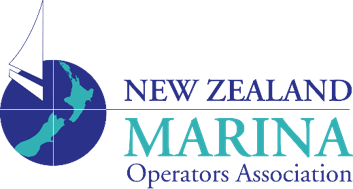Glass half full for NZ marina operators
Yachting and maritime past times have a history of thriving in times of hardship. Many of New Zealand’s yacht clubs and sailing classes came out of the depression and post-WW2 years. They were founded in the days where there were fewer travel and lifestyle opportunities, and for this same reason the marine and marina industries in New Zealand could be part of the country’s economic recovery today.
On the eve of move to the relative freedom of Level 2, and even after seven weeks of strict lockdown, there is a lot of reason for optimism for the marine and marina industries, say operators of the country’s marinas at a meeting of the NZMOA Executive.
“Right now we are focused on measures to eliminate Covid, to get out of lockdown as quickly as possible,” says Andrew Welsh, General Manager at Wellington’s Chaffers Marina. “We all need to play the game to get out of it quickly.”
Assuming that New Zealand’s lockdown is successful, what will the ‘new normal’ look like for the marina industry and those it supports, including its customers, commercial tenants, marine suppliers, marine contractors and its staff?
Andrew Wilkes is owner-operator of the stainless steel engineering firm Dixon Manufacturing Ltd. He has noticed that while no marina related projects have been cancelled (some have been postponed) there is a pulling back on other projects that has put strain on small-medium sized businesses like his. This includes some cancelled boat builds, and the cancellation of the annual Hutchwilco Boat Show in May.
Andrew says it’s too early to tell what the industry will look like, but he expects we will have a clearer picture in the next two months.
But generally Andrew, even as a business owner, sees reason to be positive: for one thing, many New Zealanders who can’t travel overseas will have more opportunity to use their boats, and with that they will need to maintain, upgrade and provision them, spending money with New Zealand businesses in the process. The reduced price of fuel is helpful to those who own powerboats too.
That is also the mindset of Tom Warren, director of Heron Construction, which specialises in building marinas all around the country. Tom also sits on the board of New Zealand Marine.
“People will still enjoy getting out on the ocean, it’s part of the New Zealand psyche. I believe the marine sector will be vibrant,” he says.
Two months ago many of New Zealand’s marinas had redevelopment or expansion projects planned or underway, to accommodate more boats, commercial buildings, and to improve environmental outcomes.
While Tom foresees some slow down of some waterfront infrastructure projects (for example, the Marlborough region is now rethinking some of its programmes), he says there is a long term shortage of marina berths in New Zealand, and demand remains high.
Marina consultant Phil Wardale is on the cusp of starting two new waterfront projects in New Zealand’s regions with support from the government’s Provincial Growth Fund. He is aware of the unknowns.
“We are now going into one of the biggest recessions the world has seen. We know it’s there but we won’t feel it for a little while,” he says.
“There are people who were doing well, that now don’t have businesses. As an industry we need to ensure that we choose to support New Zealand businesses and New Zealand people however we can, and that our projects are designed to do this.”
Chris Galbraith is General Manager of Far North Holdings, and Chair of NZMOA. From his position in the Bay of Islands, he believes that despite stresses in the economy, the industry is fortunate to have a passionate group of New Zealanders who love boating. Even in a depression or recession, we can get out on our boats, he says, and spend money on them.
By nature boating is also the ideal past time for isolating from a virus – you can isolate with your ‘bubble’ on your own vessel, and with blessing to go ahead in early 2021, the 36th America’s Cup will be another boost.
Chris says that the marina industry is in a position to support other maritime industries and it should do so.
“There will be challenges but we are here to keep going and to keep the dream alive.”

